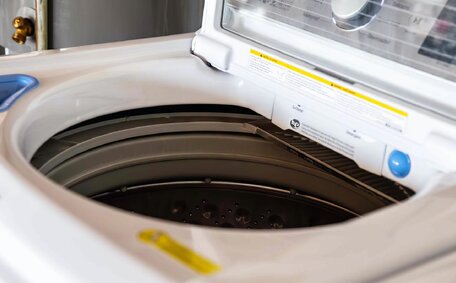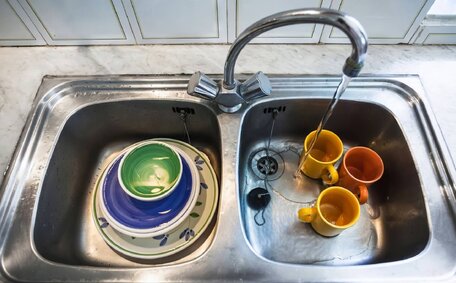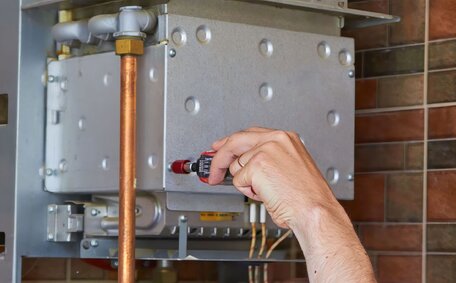Understanding Hot Water System Warranties
One key consideration when purchasing a new hot water system is the warranty coverage for the heater. Water heater warranty does offer essential protections and peace of mind, covering repair and replacement costs in the event of defects or malfunctions.
Hot water system warranties generally provide 5 to 10 years of coverage, encompassing major component failures. Hot water tanks usually have coverage against corrosion or leaks for 5-6 years date from purchase, with individual parts maintaining a warranty span of 1-5 years.
Labour warranties commonly last 1 to 2 years, covering services relating to hot water system maintenance. Premium and extended warranties provide additional advantages, such as extended labour coverage from the installation date.
Verify the specifics of your continuous flow hot water system warranty, as it may not cover all repair or replacement issues, despite generally including tank corrosion or leaks.
Water heater warranties generally protect against major system failures but often exclude issues like scale buildup and chemical damage. Adherence to the manufacturer’s installation instructions is vital for warranty compliance and eligibility for compensation should issues arise.
Have your model details, serial number, service records, and installation proof at hand when filing a repair or replacement claim for your Rheem hot water system. Contact us for expert assistance; we’ll explore options for problem resolution and coordinate with manufacturers or authorised suppliers before commencing repairs. There are also strict time limits for reporting faults, often 30-90 days from discovery.
Comprehending your hot water heater warranty coverage provides assurance and guides proactive measures to extend its lifespan.
What is Typically Covered By a Hot Water System Warranty
Electric hot water system warranties typically offer protection against faults in the following components and repairs:
- Tank cylinder - Covered for corrosion or leaks for 5-6 years.
- Internal parts like heating elements, thermostats, valves - 1-5 years parts warranty.
- External components like piping, insulation, anodes - 1-2 years.
- Labour - Most warranties cover labour costs for 1-2 years post-installation, with some offering 1 year of parts and labour for the cylinder.
The cylinder is often the costliest part to replace, making the 6 year warranty a significant protection against early failure. Components such as heating elements, thermostats, and valves can fail over time, so the 1-5 year parts warranty covers repairs or replacements.
While warranties ensure essential protections, they typically do not cover issues arising from water quality, such as scale build-up, which can damage systems. Chemical corrosion and sediment are also excluded. Proper anode maintenance and water treatment, which cannot be excluded from the owner’s responsibilities, are crucial to comply with warranty terms.
Understanding your water heater’s warranty coverage enables you to get eligible components or labour fixed within the warranty period. Just be aware of common exclusions like water quality and chemical damage that fall outside warranty scope.
Manufacturer Warranty vs Installation Warranty
Be aware of two main warranties when buying and installing a Rheem hot water system: the manufacturer’s and installation warranties.
The manufacturer’s warranty is provided by the brand who makes the water heaters. It covers defects in the materials, components and workmanship of the system itself. Manufacturer warranties on tanks typically extend for 6 years, with 1-5 years of coverage for parts.
Labour is usually covered for the first year if the goods do not meet acceptable quality standards.
Installation warranties, like those from Parramatta Plumbing, provide coverage for services related to your hot water system’s installation. This installation warranty spans up to 5 years and addresses installation-related issues, excluding the tank itself. It may come with guarantees for things like faulty pipe connections, leaks, electrical problems or improper installation.
Manufacturer warranties protect tankless water heaters, and installation warranties cover plumbing tasks, providing broad security for your unit. These two warranties work together to protect homeowners against both product defects and installation problems with components like the hot water tank over both the short and long-term.
Checking the fine print of each warranty is advised, as terms and exclusions can vary. Claims should be directed to the relevant provider - the manufacturer or installation company. Understanding these two warranty types allows customers to correctly claim under the right policy as issues emerge.
How Long Do Hot Water System Warranties Last
Hot water system warranties typically last between 5 to 10 years. Here are some typical warranty lengths:
- Tank cylinder - Usually warrantied for 6 years against corrosion and leaks.
- Parts - Components like heating elements and valves are typically covered for 1 to 5 years.
- Labour - Most brands include 1-2 years of labour coverage.
Extended warranties may protect crucial parts such as the relief valve, offering additional coverage for up to 10 years for tanks and parts beyond the purchase date. Nevertheless, the standard tank warranty lasts about 6 years from the date of purchase while parts generally have 1-5 years of coverage.
Examine your water system’s warranty for terms specific to the model and brand. While these typical timeframes give a general guide, actual warranty lengths can differ.
Review your product paperwork to confirm the specific duration of your water heater warranty and verify coverage. This confirmation outlines the precise warranty lengths, detailing that you are also entitled to goods services should defects arise.
Understanding the duration of water heater warranties empowers you to confidently make claims within the valid coverage period. Ensure to check the specific warranty conditions applicable to your heater.
\ - Tank cylinder - Usually warrantied for 6 years against corrosion and leaks.
\ - Parts - Components like heating elements and valves are typically covered for 1 to 5 years.
\ - Labour - Most brands include 1-2 years of labour coverage.
\
What is Not Covered By a Hot Water System Warranty
There are limitations to what hot water system warranties will cover. Here are some common exclusions:
- Damage resulting from incorrect use, accidents, or any other reasonably foreseeable loss damage
- Scale build-up and sediment, often cannot excluded under Australian warranty terms
- Chemical corrosion from poor water quality
- Parts not supplied by the manufacturer
- Normal wear and tear
- Damage from modifications or alterations
- Travel cost water for repairs
Warranty voidance can occur if:
- Maintenance is not performed as specified
- The system is used for non-residential purposes
- Installation is not done by a qualified technician
Review your warranty’s fine print to grasp all exclusions, including scenarios of foreseeable loss. Focused care and maintenance will help you avoid many common issues, ensuring it’s done efficiently to keep your hot water system in top shape.
The Plumber’s Role in Honoring Warranties
A professional plumber, as the installer, is integral to honouring your hot water system’s warranties. Here are some of the key responsibilities of your plumber:
- Timely completion of any authorised repairs or replacements covered under warranty.
- Using only manufacturer approved parts for warranty repairs.
- Following proper procedures for diagnosis and service of your system.
- Providing documentation for warranty claims.
- Complying strictly with all terms and conditions specified in the warranty.
Should you experience any faults, defects, or failures of components covered under warranty within the specified timeframe and usage limits, call us or contact your plumber regarding your warranty. Reaching out to the plumber who installed your water heater under warranty ensures proper handling of any issues arising from their workmanship.
An experienced service team will handle all heater warranty-related services efficiently, while liaising with the manufacturer on your behalf as needed. This helps ensure any covered issues are resolved correctly and that your warranty remains intact throughout its duration.
When to Contact the Manufacturer vs the Plumber
If an issue emerges within the warranty coverage period, determining whether to contact the manufacturer or your plumber depends on the nature of the problem.
Manufacturers should be your initial contact for defects in parts of your gas hot water heater covered under the standard warranty, such as a leaking tank, a faulty heating element, or a malfunctioning valve. Upon assessing the issue, they may facilitate a replacement or refund major failure if applicable or service your unit as per the product warranty conditions.
However, for issues stemming from the water supply installation or workmanship, such as leaks, electrical faults, or improper performance, your plumber is the appropriate contact under your water heater warranty. Your plumbing specialist will examine the issue and address any problems ensuring you’re entitled goods repaired under warranty terms.
Basically, product defects and component failures should be handled by the manufacturer under their warranty, while installation faults fall to the plumber under their workmanship warranty. Knowing who to contact ensures fast and smooth processing of any valid warranty claims.
Regular Maintenance and Warranty Compliance
To keep your hot water system warranty valid, it is essential to adhere to the manufacturer’s recommended maintenance schedule and procedures. Consult your owner’s manual or warranty documentation to understand what servicing is required and how often.
Regular maintenance commonly includes:
- Flushing the tank annually to remove sediment
- Replacing sacrificial anodes every 2-3 years
- Inspecting parts like heating elements and valves
- Checking for leaks, corrosion and other faults
Only qualified technicians should perform maintenance. Keep detailed service records as proof of regular upkeep.
Failure to properly maintain your system can void the warranty; therefore, always check your manufacturer’s guidelines. Seek information about your manufacturer if you are unsure of any maintenance requirements.
Register your warranty with manufacturer-provided cards or online forms.
Keep your model and serial number accessible.
By sticking to the maintenance schedule outlined in the owner’s guide and completing registration procedures, your hot water system warranty remains in full valid standing. This gives you continued peace of mind and protection.
To keep your hot water system warranty valid, it is essential to adhere to the manufacturer’s recommend/li> \
Replacing sacrificial anodes every 2-3 years \
Inspecting parts like heating elements and valves \
Checking for leaks, corrosion and other faults \
Avoiding Voiding Your Warranty During Repairs
During the warranty period, when your hot water system requires repairs to effectively heat water, it’s crucial to avoid actions that could void your coverage. Here are some tips:
- Do not attempt DIY repairs, as this will void the warranty. All servicing must be done by authorised technicians.
- Use only genuine manufacturer replacement parts. Third-party or generic components can invalidate the warranty.
- Ensure any technicians follow the manufacturer’s repair guidelines and do not alter or modify the system’s design.
- Keep detailed service records and receipts for all repairs undertaken.
- Check warranty terms before making any changes like relocating the unit.
If you are unsure whether a repair could impact your warranty, for service please select the appropriate contact and reach out to the manufacturer for advice. Unauthorised repairs, incorrect parts or improper procedures can easily void your coverage.
Following the manufacturer’s guidelines and employing qualified technicians ensures safe repairs and maintains your water heater warranty.
Extended Warranties and Third-Party Providers
Home warranties for new water heating systems may be offered as extended options by sellers or makers. American Home Shield and other Home warranty companies, along with all other third-party firms, offer a range of coverage options. Consider whether an extended warranty makes sense for you before signing up.
Potential benefits of extended warranties include:
- Lengthening the coverage duration for your tank, parts and labour
- Allowing you to upgrade models with extra features
- Covering product service repairs, calls and related costs
However, extended warranties for heat pump systems may have drawbacks, including:
- Added monthly or one-time costs that may outweigh repair expenses
- Pre-existing conditions and certain repairs may be excluded
- Warranty may not transfer to a new owner if you sell your home
Carefully read all terms under Australian consumer considerations and evaluate your personal situation. Learn more about how factors like water quality, family size, and usage levels can influence the value of extended coverage, enriching your understanding of warranties. Seek impartial advice, underpinned by Australian consumer law, and review policies, including those for solar hot water systems, from multiple providers before deciding.
While extended hot water system warranties provide peace of mind, they are an added expense to weigh up. Ensure any additional coverage properly suits your needs and budget before purchasing.






